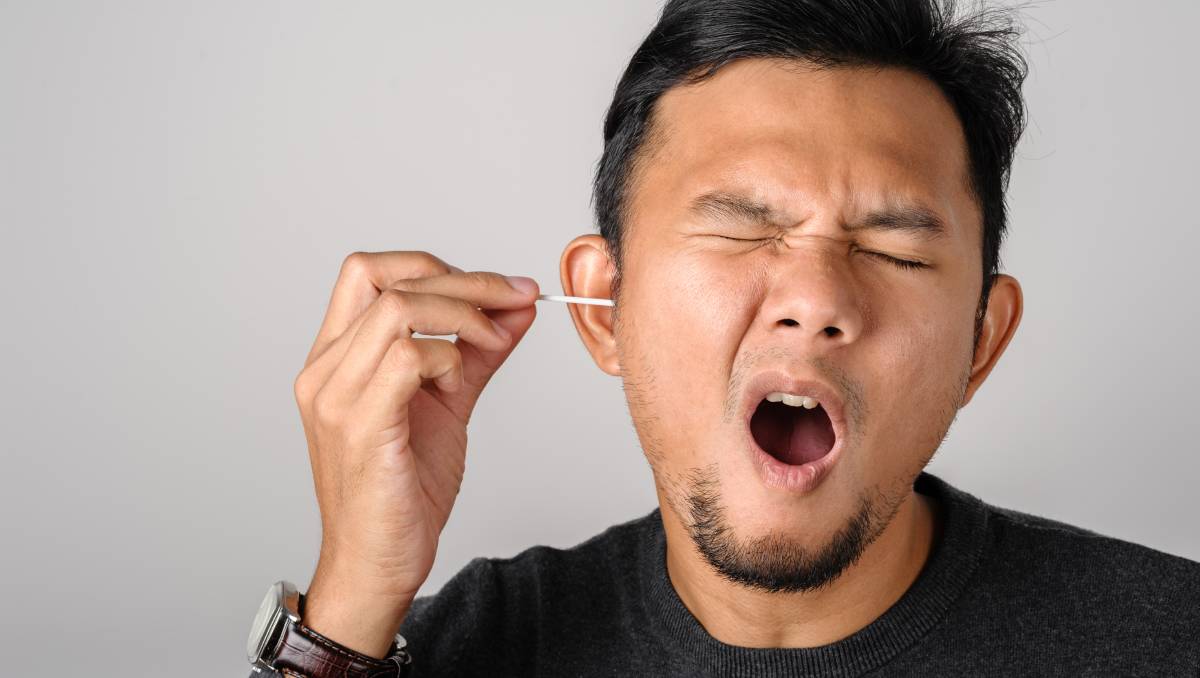
Quite simply, no – you should not use Q-tips or cotton buds to clean your ears.
To start with, most people’s ears do a good job of self-cleaning.
Manual cleaning does not need to be performed unless there is blockage causing hearing loss or infection in the outer ear canal.
The ear’s natural cleaning system acts like a conveyor belt, moving wax (as well as dried skin and bacteria) out of your outer ear canal when you perform jaw movements such as eating or talking. It is washed away when you shower.
You’ve probably heard the saying, “don’t put anything smaller than your elbow in your ear”, and this is good advice.
It’s not unusual for people to end up at the doctor’s office with ear issues from using Q-tips or even keys, pens or a finger to clean inside their ear canal.
By using objects to clean your ear you are likely to push wax and debris further into the ear.
The wax can sit against the eardrum, reducing its ability to vibrate, which may affect your hearing.
Also, you risk scratching or puncturing your eardrum or outer ear canal which can impact your hearing or lead to an infection. Some of the most severe consequences include deafness, vertigo or a loss of taste.
Some people use EarClear or the other wax dissolving liquids, but if the wax doesn’t move using this method, the wax can end up stuck in the outer ear canal, leaving a soggy obstructive mess.
The best way to have your ear cleaned is by an ENT surgeon.
A microscope is used to look into the ear canal and gentle suction clears wax, under direct vision.
Ear syringing by a GP can be effective in experienced hands though may leave wax or water behind.
It is fine to clean the entrance to your outer ear, but you only need to do this with water and a washcloth while you shower.
Why do we have earwax?
Ear wax is made up of fat, dried skin cells and sweat. It acts as a barrier between the outside world and your sensitive outer ear skin. It protects your outer ear from dust, insects and even acts as an antibacterial agent to prevent microorganisms entering your body and making you sick.
Dry ears get itchy, and removing the wax will make this worse – not the other way around. If you have itchy ears you are probably cleaning your ears incorrectly, or too much.
Ear wax can vary between different people and their activities. According to Queensland Health, people of Caucasian and African descent have dark yellow, sticky earwax whereas those with Asian or First Nations descent have light, dry and flaky earwax. Working in a dirt-filled environment can lead to darker earwax as the dust particles are caught by the wax.
Older people and those with hearing aids or eczema can have increased earwax build up, and some people naturally produce excessive wax. If this is causing you issues it is best discussed with a doctor.
